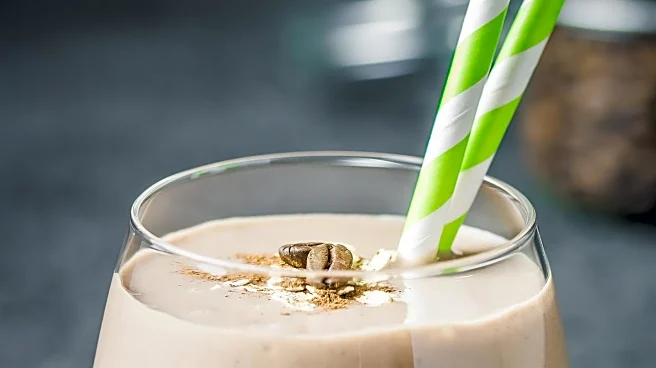What is the story about?
What's Happening?
A recent study presented at United European Gastroenterology Week 2025 has found a significant link between the consumption of non-sugar beverages and an increased risk of metabolic dysfunction-associated steatotic liver disease (MASLD), previously known as non-alcoholic fatty liver disease (NAFLD). The research analyzed data from 103,251 participants in the UK Biobank, revealing that consuming more than 250 grams of sugar-sweetened or low/non-sugar-sweetened beverages daily was associated with a higher risk of developing MASLD. The risk was notably higher for those consuming low- or non-sugar-sweetened drinks, with a 60% increase compared to a 50% increase for sugar-sweetened beverages.
Why It's Important?
This study challenges the perception of non-sugar beverages as healthier alternatives to sugary drinks. The findings suggest that these beverages may still pose significant health risks, particularly concerning liver health. The potential impact is substantial, as many consumers opt for these drinks to avoid sugar-related health issues. The study highlights the need for consumers to be cautious about their beverage choices and for further research into the health effects of artificial sweeteners. The beverage industry may face increased scrutiny and pressure to reformulate products or improve transparency about health impacts.
What's Next?
The study's findings may prompt health organizations and policymakers to reconsider guidelines and recommendations regarding non-sugar beverages. There could be increased advocacy for clearer labeling and consumer education on the potential risks associated with these drinks. The beverage industry might also explore alternative formulations to mitigate health risks. Further research is likely to investigate the mechanisms by which non-sugar beverages affect liver health and to explore potential interventions to reduce associated risks.
















